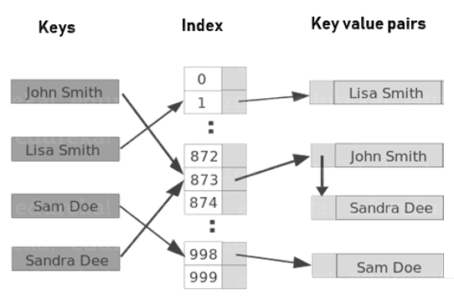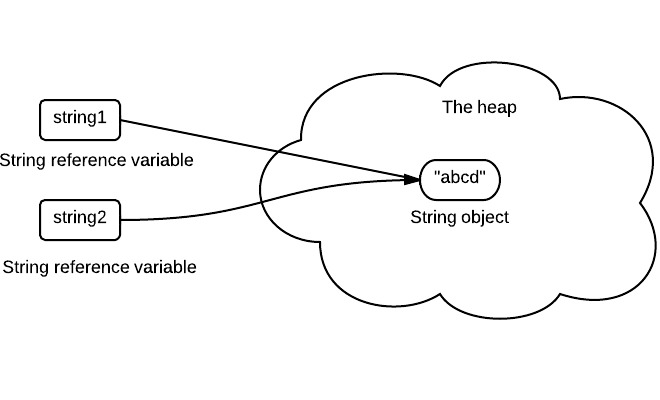Why Are Strings Immutable in Java? Recognizing the Core Principles
Why Are Strings Immutable in Java? Recognizing the Core Principles
Blog Article
What Is Unalterable Strings and How It Functions
In the world of shows, comprehending the principle of immutable strings is extremely important for developing durable and secure applications. Immutable strings refer to strings that can not be modified after they are created, ensuring data stability and predictability within the code.
The Basics of Unalterable Strings
Unalterable strings, as a fundamental concept in shows, are character sequences that can not be transformed when they are created. This suggests that once a string is assigned a worth, that value can not be modified. In languages like Python and Java, strings are unalterable items, resulting in numerous implications in regards to memory monitoring and data stability.
Among the vital advantages of immutable strings is that they supply a feeling of security in information control. Because the material of an unalterable string can not be changed, it makes certain that the original information remains intact, lowering the risk of unintended changes throughout program execution (Why are strings immutable in Java?). This residential property also simplifies debugging processes, as developers can trust that once a string is defined, its value will certainly not be accidentally changed
When a brand-new string is created based on an existing one, instead than changing the original string, the new worth is kept separately. Overall, comprehending the essentials of unalterable strings is important for understanding programs concepts and enhancing code effectiveness.
Benefits of Immutable Strings
Structure upon the security and performance benefits of immutable strings, their advantages include boosting code integrity and streamlining simultaneous shows tasks. By being unalterable, strings can not be changed after development, which gets rid of the threat of unintentional changes in the data they save. This inherent immutability makes sure that as soon as a string is produced, its value remains constant throughout the program's implementation, decreasing the possibilities of bugs brought on by unexpected modifications.
Furthermore, unalterable strings add to code integrity by making it easier to reason regarding the state of a program. Since strings can not be changed, developers can rely on that a string will certainly always hold the same value, streamlining debugging and maintenance efforts. This predictability causes much more secure and trustworthy codebases.

Application in Programs Languages
Within various programs languages, the consolidation of unalterable strings is an essential facet that affects exactly how data is handled and controlled within code structures. The application of immutable strings varies throughout different shows languages, with each language supplying its very own systems to sustain this idea.

In comparison, languages like C and C++ do not have integrated support for unalterable strings. Designers in these languages should by hand apply immutability by imposing regulations within their code to stop straight modifications to string items.
Finest Practices for Dealing With Immutable Strings
When dealing with unalterable strings in programming languages like Java and Python, sticking to ideal methods guarantees reliable and safe and secure information manipulation. One of the vital ideal methods is to use StringBuilder visit site or StringBuffer as opposed to straight adjusting strings, especially when handling extensive concatenation procedures. These classes provide mutable choices for string control, helping to stay clear of unneeded memory allotments and enhancing performance.
Another finest method is to make use of string interpolation or formatting operates offered by the language rather than manual concatenation. This not only boosts readability but also help in avoiding common challenges such as unintended string alterations. Additionally, when dealing with delicate data such as passwords or API secrets, it is important to avoid saving them as simple message in unalterable strings. Using secure storage devices like char selections or specialized libraries for taking care of delicate details aids reduce security threats connected with immutable strings.
Real-world Applications and Instances
Exploring useful implementations of immutable strings in various markets discloses their substantial effect on information honesty and system integrity. In the health care field, unalterable strings play a critical function in ensuring the protection and discretion of individual information. By protecting against unapproved adjustments to delicate details such as medical records and prescriptions, unalterable strings help preserve compliance with stringent privacy guidelines like HIPAA.
Economic institutions additionally take advantage of the immutable nature of strings to enhance the protection of client data and deal documents. Immutable strings aid avoid fraudulence and unapproved alterations to monetary info, offering a durable defense versus cyber threats and guaranteeing the trust fund and self-confidence of clients.

Final Thought
Finest techniques for functioning with unalterable strings consist of preventing direct alterations and using approaches that return brand-new string items. Real-world applications of immutable strings include information encryption, caching, and string adjustment tasks.
Unalterable strings refer to strings that can not be changed after they are produced, making sure data integrity and predictability within the code. When a brand-new string is produced based on an existing one, rather than changing the original string, the brand-new worth is saved separately.In languages like Java and Python, strings are immutable by default, indicating that when a string anchor object is produced, its value can not be altered - Why are strings immutable in Java?. Finest techniques for functioning with unalterable strings consist of preventing direct alterations and utilizing methods that return brand-new string items. Real-world applications of immutable strings consist of data encryption, caching, and string adjustment jobs
Report this page